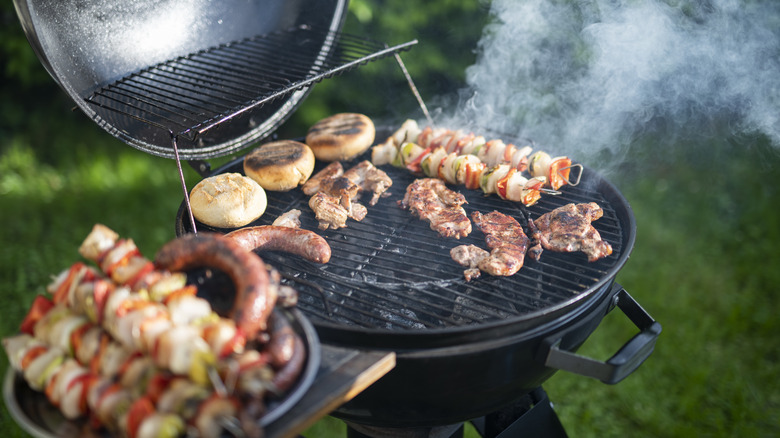What's The Best Way To Clean Rusty Grill Grates?
Outdoor grills experience quite a bit of wear and tear over time, particularly when it comes to rusty grates. Rust on your grill can affect the quality of the food you prepare while also contributing to major damage. The proper grill cleaning technique can remove rust and restore your grill grates to ensure your next backyard barbecue is a rousing success. The first step is to consider whether your grill grates are made from cast iron or stainless steel. With cast iron, you can use a harsh wire brush when removing rust, whereas stainless steel requires a softer brush to avoid damaging the grates.
The next step is to secure an appropriate cleaning agent. If you opt for a commercial rust remover, make sure it's designed for use on grills and is compatible with the type of grill grate material you're cleaning. In this case, you should follow the instructions on the bottle to ensure a safe and effective cleaning session.
And if you can't find a suitable commercial cleaner or generally try to avoid harsh cleaning solutions around the home, you can use household items to make a cleanser.
How to create a homemade rust remover
Chances are, you have all the ingredients you need for a DIY rust remover in your home right now. If your rust issue is minimal, you may be able to use dish washing liquid to get rid of it. In this case, create a cleaning solution consisting of dish soap and warm water and use a cloth to rub it over the grill grates. Once that's complete, rinse the grates to remove any residual soap to ensure a quality cooking experience next time you use the grill.
When it comes to substantial sections of rust, try combining powder dish washing detergent with lemon juice, which will form a sticky substance that can be spread over rust spots on grill grates. Allow the solution to remain on the grates overnight before wiping away excess and thoroughly rinsing under water. For faster results, swap out the lemon juice and powder detergent for baking soda and vinegar, as the latter cleansing solution can dissolve rust in about a half hour.
While these cleaning techniques are highly effective, you should also take steps to safeguard your grill against rust.
Steps to stop rust from forming on your grill
All grills fall victim to rust eventually, no matter what they're made of. While stainless steel is designed to be rust-proof, it will begin to oxidize once the protective outer chromium layer breaks down. Accordingly, dedicated home grill masters must also have a plan for preventing rust to complement their rust removal strategy. Grill grates should be wiped down after every single use and should be deep cleaned every 15 uses or so. Remember, stuck-on food can contribute to rust formation, so removing it is an important part of upkeep.
When the grill isn't in use, covering it with a sturdy material is imperative. Nylon and vinyl covers are ideal for this purpose, as they can prevent moisture from getting on the grill grates and contributing to moisture damage. If you have a garage or storage shed at your home, you should also consider storing the grill inside when you're not using it.
These methods will allow you to get more out of your grill by combating rust both before and after it forms.


